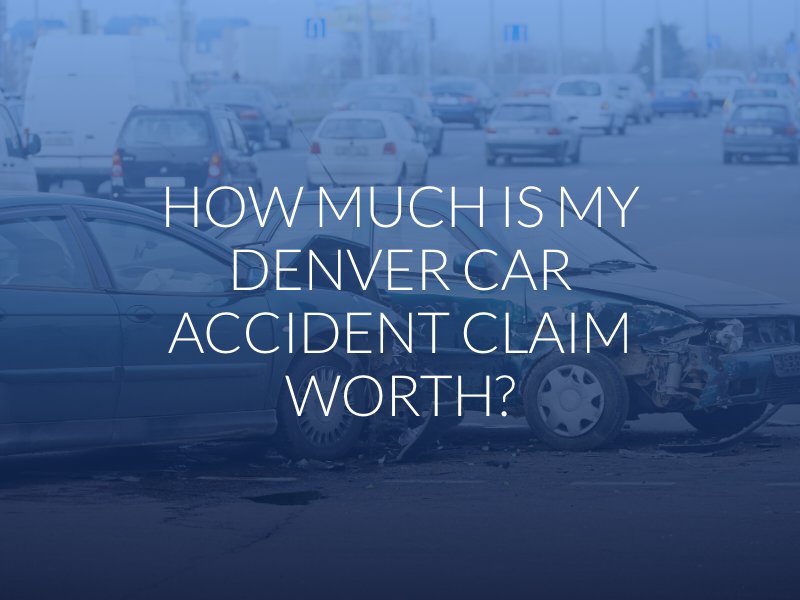For purposes of auto liability coverage, states are considered either fault states or no-fault states.
If you are involved in an accident in a no-fault state, your insurance company pays for your
damages regardless of who is at fault. However, there are some exceptions to this rule.
Conversely, the at-fault party’s insurance coverage must pay the damages incurred in a fault
state.
Colorado changed from a no-fault state to a fault state over twenty years ago. Now, if you are
injured in a Denver motor vehicle accident caused by another party, you need to be able to
prove their fault for their insurance coverage to pay your damages.
A fault-state may also be called a tort state because injured victims must prove that someone
else caused their damages. In a tort state, damages are not usually limited as they may be in a
no-fault state.
An experienced Denver car accident injury attorney can investigate your accident, determine
and prove its causes, and hold the at-fault parties responsible for your damages.
Colorado’s Auto Liability Insurance Requirements
Colorado law mandates that drivers carry a minimum level of liability insurance coverage. The current required liability coverage is known as 25/50/15. This means your coverage must provide at least:
- $25,000 in bodily injury coverage per person in each accident.
- $50,000 total for bodily injury when more than one person is injured in an accident.
- $15,000 in property damage per accident.
While the minimum requirements may provide sufficient coverage in a minor accident, they may be woefully insufficient in an accident that results in severe injuries. It is not uncommon for medical expenses to climb into the six-figure range per person in catastrophic injury accidents. Many insurers recommend increasing your bodily injury liability coverage to at least $100,000 per person and $300,000 per accident.
If a driver does not have the required insurance coverage, they will be solely responsible for paying the damages of all injury victims. Your driver’s license will also be suspended until you obtain and provide proof of insurance.
Additionally, your premium rates will likely be much higher because you caused an accident and did not have the required insurance coverage.
If you have the minimum required coverage but it is insufficient to cover all damages caused in an accident that was your fault, you may be responsible for the damages over your coverage limits.
Additional Insurance Coverage To Consider
You may want to purchase more insurance coverage than the state-required minimum. Insurance companies offer other optional automobile insurance coverage that can help protect you in accidents where damages exceed the minimum coverage amounts, the other driver does not have insurance, and more.
- Uninsured/Underinsured Motorist Coverage (UM/UIM) protects you by covering medical expenses and damages if you are involved in an accident caused by another driver who does not have insurance or has insufficient insurance coverage.
- Medical Payment Coverage (Med Pay, or MPC) helps cover medical expenses incurred
in an accident. Insurers in Colorado are required to offer this coverage. However, drivers may choose to opt out. - Collision insurance covers damages to your vehicle if you crash into another object, such as a wall or a parked vehicle.
- Comprehensive insurance provides coverage for damages caused by incidents such as bad weather, theft, vandalism, or wildlife.
Even though these types of coverage are optional, they are highly recommended.
Proving Fault in a Car Accident Claim
Since most car accident injury claims are based on negligence, you must prove that four elements exist. First, you must prove that the defendant owed you a duty of care. All motorists owe a duty of care to drive with reasonable care to avoid harming others. Second, you must prove that the defendant breached their duty by negligent action or inaction.
For example, if a driver runs a red light, they most likely breached their duty of care. Next, you must prove that the defendant’s negligent action or inaction was the cause of your accident and injuries. In the above example, you must prove that the cause of the accident and your injuries was the defendant running the red light.
Finally, you must prove that you suffered damages because of the defendant’s negligent action or inaction. Damages may be bodily injury, property damage, pain and suffering, and other costs or losses.
We will use evidence to prove that the defendant caused your accident and to prove the existence and value of your damages. Some types of evidence we may use to prove your case and reach a fair settlement or to win at trial include:
- Police reports and officer responding officer testimony.
- Photographs and video footage from the accident scene.
- Dashcam video.
- Traffic camera video.
- Surveillance video from nearby businesses or residents.
- Event recording devices (black boxes) from the involved vehicles.
- Eyewitness accounts.
- Expert witness reports and testimony to establish the cause of the accident.
- Medical and economic expert witness testimony to establish your damages and their current and future value.
- Income tax returns and pay stubs.
- Journals documenting your pain and the impact of your injuries on your daily life.
Our car accident attorneys in Denver carefully choose the best evidence to support your claim and build your strongest case to help you recover maximum compensation for your damages.
How Much Is My Denver Car Accident Claim Worth?
The type and amount of damages you may be able to recover in a Colorado car accident injury claim depend on numerous factors. Two of the most important factors are the severity of your injuries and the available sources of compensation to pay your damages.

If the at-fault driver has sufficient liability insurance, recovering damages is much easier once we prove causation and liability. However, collecting damages can be more challenging if the at-fault driver has no insurance or insufficient insurance. Our attorneys are excellent investigators who can help determine what other assets may be available to help pay your damages.
Once our car accident lawyers in Denver have evaluated all aspects of your case, we can estimate what we believe would be a fair settlement of your case.
In a successful Colorado car accident case, you may be able to recover economic and non-economic damages such as medical expenses, lost wages, property damages, pain and suffering, emotional distress, loss of enjoyment of life, and other tangible and intangible damages. In rare cases, you may also be able to recover exemplary damages.
How Dan Caplis Injury Law Can Help With Your Car Insurance Claim in Denver
If you have been injured in a Colorado car accident caused by another party, you may be entitled to recover compensation for your damages. At Dan Caplis Law, our Denver car accident attorneys have the experience, skills, and resources to help you recover maximum compensation for your injuries. Call (303) 770-5551 or visit our contact page and schedule a free consultation to discuss your claim.




